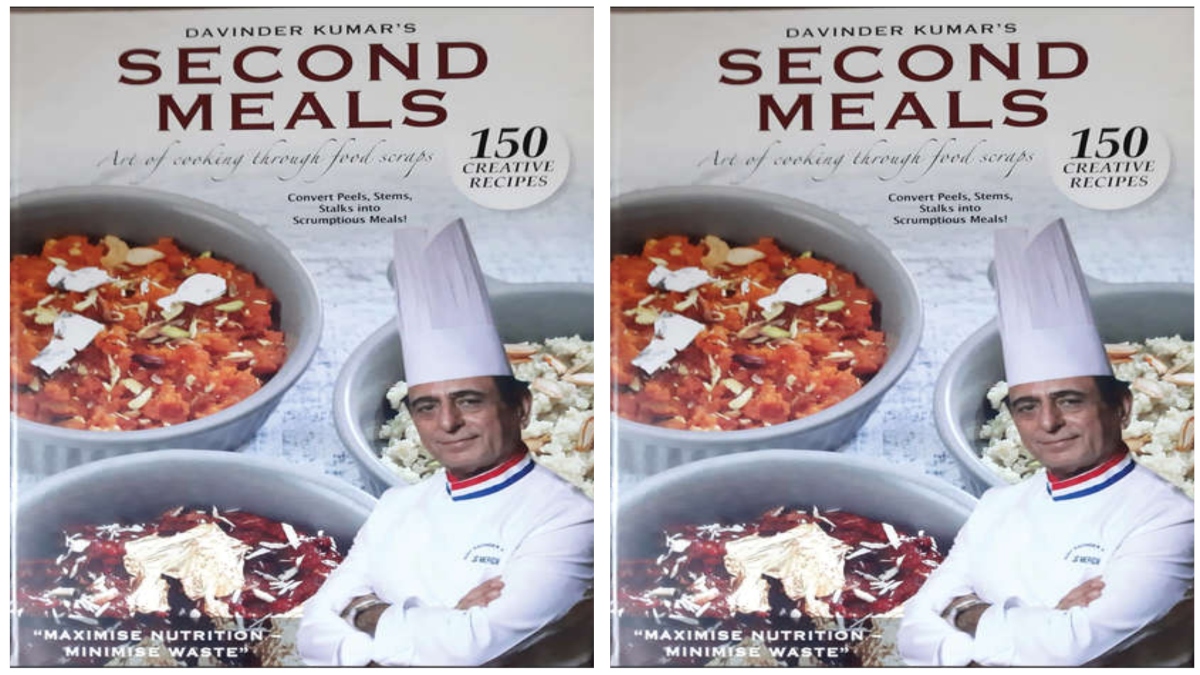


One of the greatest sins in a world where billions of people go hungry every day is to waste food. Those who have their plates full must ever remain grateful that they were amongst the privileged people who do not have to go hungry. Therefore, it should be more of duty if one can utilise every part of the vegetables and fruits which we consume in order to both increase our nutrition intake and keep the costs down. Davinder Kumar, one of the most underrated Chefs in the hospitality industry has come out with a prescription to minimise food wastage. He is very well qualified to speak on the subject; out of 50 years he has been working as a Chef, the first 15 were spent with the Oberoi’s group and the remaining 35 with the Le Meridien at Windsor Place in the heart of New Delhi. Davinder is a Master Chef and along with his team comprising Jaydeep Dutta, Varun Chauhan and Karan Mehta, has given culinary skills a new meaning altogether. His latest book, “The Second Meals’’ which contains 115 recipes to convert peels, stems, stalks into scrumptious meals is a step in the direction of minimising waste and maximising nutrition. Davinder has already made a mark as someone who has been exceptional in the preparation of French food and equally good at serving mouth-watering Kababs; no wonder, the spread at the Meridien is second to none in the city. Having known him for over three decades, I thought it fit to ask him why he had chosen this subject to write on. He said that food wastage was on the rise and one of the many ways of adapting the art of recycling the scraps was to give a new meaning to the use of roots and stems for creating healthy, edible recipes.
His book, published by Shubhi publications was recently released by Vir Sanghvi, a food connoisseur and amongst the best-known food writers in the country. Davinder Kumar is of the view that in order to avoid wastage, one has to buy smart, plan in advance and take steps to store the food in a correct manner while keeping in mind the seasonal veggies. Food preservation was equally important and to ensure the longevity of the leftovers, the fridge should always be kept clutter-free. According to him, the difference between good cooking and great cooking lies in the hands of the Chef. Slow cooking in oil concentrates the flavour molecules inside a tomato. The degree of heat while cooking makes the maximum difference in taste. A hot dessert actually needs less sugar.
A cold dessert needs more. A hot sabzi can taste fine even if you make it with bitter vegetables. Try it when it is cold and the bitterness will come through. If we salt meat, the salty liquid makes its mussels, protein, myosin more soluble. Mustard oil extract from mustard seeds has characteristics; mustard-like flavour. But the same seeds taste different when we add them in a oil for a sabzi or curry because high heat destroys the enzymes that give the mustard its pungent taste. One thing that should always be kept in mind is to wash all the vegetables and fruits before commencing cooking. He also recommends that there should always be waste analysis of vegetables and fruits and one must innovate with creative ways to use scraps.
It is thus little wonder why Davinder Kumar, despite maintaining a low profile is regarded amongst the top Master Chefs of not only the capital but the entire country. The soft-spoken food craftsman comes across as an extremely modest person who has always something new to offer, both on the buffet table as also in fine dining. The theme remains, cut down on wastage and use everything possible to put together a sumptuous meal that provides an unforgettable experience.